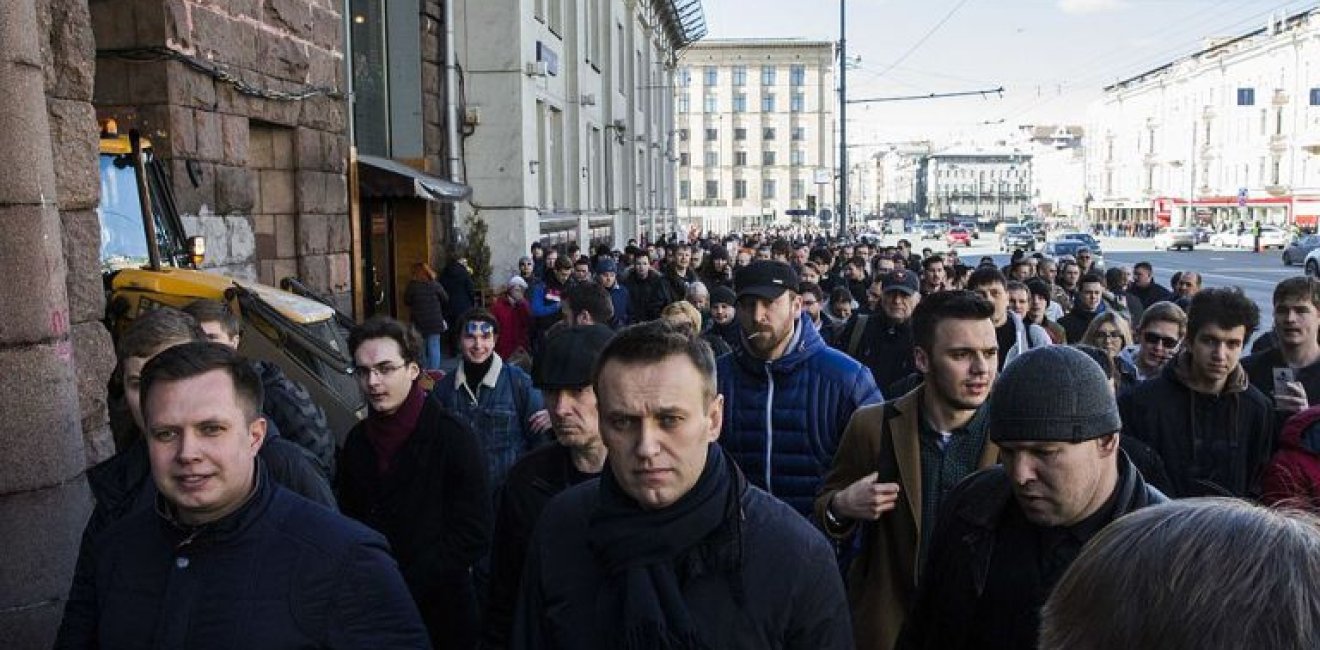
A blog of the Kennan Institute
Western observers usually schedule their monitoring visits close to election night. They make their rounds of the polling stations and note minor irregularities. This year 28 experts from 13 countries including the United States will visit Russia around election day. But in countries like Russia, few violations happen on election day itself. People in Western democracies may think that evil autocrats rig their elections through mass ballot stuffing or electoral register manipulations. But things like that are increasingly rare in Russia or in similarly sophisticated electoral autocracies. In the 21st century such methods are passé.
Time and again, Russian officials have reproduced a scheme that was perfected by none other than Josef Stalin, who ruled the Soviet Union between the late 1920s and 1953. Instead of crudely intervening in the final vote casting, a clever autocrat stages the entire election in a way that fundamentally favors him. Modern Russia’s approach begins with electoral legislation.
First of all, electoral laws and rules are subject to constant change and the changes are, invariably, designed to benefit the incumbents or their protégés. Even the date of the election depends on the kind of outcome political managers have in mind. In the United States, politicians can plan for the years ahead because the schedule of future elections is fixed. In Russia, such advance planning is impossible, as the electoral schedule and rules keep changing with no objective logic.
Second, Russian electoral legislation provides electoral commissions with ample authority to prevent the undesirables from being registered as candidates. It is no secret that, contrary to their declared principles, electoral commissions in Russia are not independent from the executive branch. In practice, they are subordinate to local authorities and do their bidding.
"Their logic is simple: if they have not announced an election yet, then campaigning is illegal, is it not?"
Third, Russian legislation provides for ridiculously short electoral campaign periods that favor those incumbents with access to administrative and financial resources. Campaigning for a position as a federal MP or the president of Russia is supposed to be completed in three months, from nominations to voting. It is hard to imagine a situation when a presidential candidate would successfully run a three-month campaign in such a vast country, unless he is a sitting president or the president’s designated successor.
Nevertheless, Russian legislation insists on this restriction. Attempts to launch a campaign in advance and rally support for a candidate before the official campaign period (and this is what the Russian opposition leader Alexei Navalny is doing despite the fact that he is unlikely to be registered as a candidate) raise eyebrows and prompt officials to search for reasons to announce these campaigns illegal. Their logic is simple: if they have not announced an election yet, then campaigning is illegal, is it not?
Fourth, there is nothing even remotely resembling equality of candidates in terms of their access to voters, directly or via mass media. The ruling party candidates, not to mention Vladimir Putin himself, enjoy monopoly status in publications, reports, and news from the major media outlets. The time officially allocated for electoral advertising is not in the same league with the real volume of campaigning for pro-government candidates that descends on a voter.
"There are no formal bans on support coming from large businesses, but Russian businessmen know perfectly well that donating to an opposition candidate means inviting trouble. And trouble can be anything from losing a business to losing one’s freedom."
Even if an opposition candidate has sufficient funds to print campaign materials or buy advertising slots in the media, there are numerous (formally legal) ways to prevent him or her from doing so. Reaching out to voters directly is also extremely difficult, as one can find facilities for electoral offices or meetings with voters only if the people in power do not mind. Otherwise, there are hundreds of seemingly legal ways to deny access.
Finally, Russian opposition members struggle to fund their electoral campaigns. Unlike pro-government candidates, who openly receive considerable donations from major companies, opposition candidates can only rely on private donations even in a best-case scenario. There are no formal bans on support coming from large businesses, but Russian businessmen know perfectly well that donating to an opposition candidate means inviting trouble. And trouble can be anything from losing a business to losing one’s freedom.
"If the goal of monitoring is to ascertain the fairness and democratic nature of elections, then one must monitor the entire process and refuse to deem it free and fair, if they find that well-known critics of the regime are denied the right to compete."
With all this in mind, the process of watching Russian citizens come to the polling stations and casting their ballots into the ballot boxes is not a process that can uncover any suspicious or outright fraudulent activities. Voting itself does not decide anything. Thanks to all the preparatory work, election organizers and the majority of the population know the result in advance. To me, such electoral monitoring is essentially devoid of any practical meaning and does not tell us anything about the real state of democracy in the Russian political system. Worse than that, by pretending that the quality of democracy in the country depends only on the process of voting, international observers provide the electoral practices of the current regime in Russia with a stamp of approval.
International organizations and representatives of Western societies and political elites should fundamentally reconsider their standards of electoral observation, currently reduced to visiting polling stations during the time immediately prior to Election Day. If the goal of monitoring is to ascertain the fairness and democratic nature of elections, then one must monitor the entire process and refuse to deem it free and fair, if they find that well-known critics of the regime are denied the right to compete. As a matter of fact, once the list of candidates is finalized and all real opposition is left out, there is simply nothing to monitor. One must consider all subsequent procedures fraudulent by default and refrain from legitimizing the Election Day spectacle.
Author

Kennan Institute
After more than 50 years as a vital part of the Wilson Center legacy, the Kennan Institute has become an independent think tank. You can find the current website for the Kennan Institute at kennaninstitute.org. Please look for future announcements about partnership activities between the Wilson Center and the Kennan Institute at Wilson Center Press Room. The Kennan Institute is the premier US center for advanced research on Eurasia and the oldest and largest regional program at the Woodrow Wilson International Center for Scholars. The Kennan Institute is committed to improving American understanding of Russia, Ukraine, Central Asia, the South Caucasus, and the surrounding region through research and exchange. Read more

Explore More in The Russia File
Browse The Russia File
Chechnya as a Model of Modern Russia

Russia’s Indigenous Communities and the War in Ukraine

Gas and Power in a Changing US–Russia Relationship


